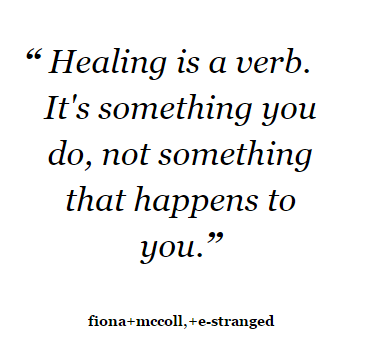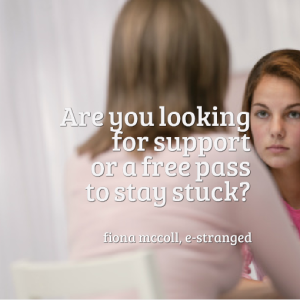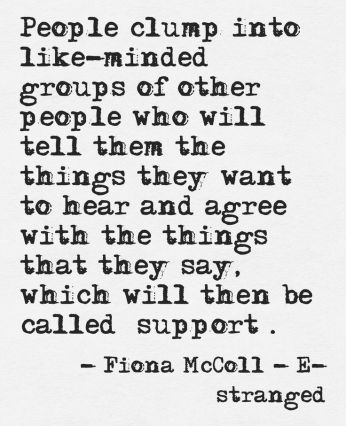 I’ve been paying attention to the emails and post comments following my last few posts and decided it was a good idea to write a post about power, our power.
I’ve been paying attention to the emails and post comments following my last few posts and decided it was a good idea to write a post about power, our power.
Last week I wrote a post, The Hard Question: What do you really want? The post was about different kids of “support”, specifically the difference between “skinny support” {validation and commiseration, no questions asked} or gutsy, juicy, genuine support of the sort that believes {straight from the heart, all the way believes} you deserve to move forward and experience health, healing, and happiness?
At the end of my post I asked, “What do you really want?” hoping to encourage my readers to consider the kind of support they look for and how they feel about the support the receive. However, as is often the way, the comments (and emails I’ve received) are tuning into something else, and are more about people’s heartfelt wishes in respect to estrangement (thank you all for sharing!)
“I want to see everyone who has played a role in my own estranged family situation to take responsibility for his or her role in creating it…”
“What I want most is to be accepted by my family.”
“I want my son and grandkids in my life. I want my granddaughter in my life. I want the brother, sister, and parents I grew up with in my life. Of course, all these things should be with the stipulation that they all like me and accept me again.”
“I want the rest of my family to see how manipulative my brother is.”
“i.d love to see my adult children.”
“I really want people to understand what I’ve been through and be more supportive.”
There’s nothing wrong with any of the desires that people have expressed, they are sincere and genuine. It is what it is.
Do I have the power?
What I want to encourage people to think about today, is their point of power. The things they can control and the things that they cannot control. Essentially the easiest way to look at this is, “does what I want depend on another person to think, feel, believe or do something different?” If the answer is “yes” – you’ve got a problem.
Back to my weight loss analogy from my post How Do You Heal? If someone tells me that the thing they most want is to lose 20 pounds and the way that they hope to lose those pounds is contingent on someone or something else changing, I am going to challenge that.
What would you think, for instance, if someone told you, “I want to lose 20 pounds so I am going to write letters to my member of parliament calling for a ban on all fast food restaurants?” How about if they said, “I want my sister/husband/father etc. to lose 40 pounds so I can lose my 20 pounds.” Or what if they said, “I want people to move my legs for an hour everyday so that I can burn extra calories.”
Of course these examples are a little absurd, but I hope they make a point. We wouldn’t be holding out much hope for that person to lose their 20 pounds if those are the sorts of things they planned to make it happen.
Control the things you can
If we want to move ourselves forward from our estrangement experience, we’re going to have to get real. We’re going to have to have a good look at the things we want and the ACTIONS that are most likely to create the results that we want. We’re going to have to ask ourselves, “What are the things I can do, all by myself, to move me closer to the way I want to think, feel and live?”
If our success is dependent upon someone else doing something or changing something, we are essentially at the mercy of something we have no control over.
This is one of the biggest reasons why people who are estranged get stuck and stay stuck. The have valid desires, things they really want to see happen, and they can’t make them happen. They can’t force it. Their health, well-being and happiness are firmly held hostage by what other people do or don’t do.
The natural fall out of this is people feel powerless, hopeless, frustrated and angry because they want what they want, and they also have no way to make it happen.
Rather than looking at what they want and asking whether they can make it happen, all that emotional guck {powerlessness, hopelessness, frustration and anger} is either projected outward to the people who aren’t doing what we want them to do. This has the unhappy follow on effect of often decreasing other people’s desire to do the things we want them to do and creating even more distance.
Or we internalize all the emotional guck and we feel terrible about ourselves, “What’s wrong with me?”, “Why don’t people love me and care about me?”, “I must be unworthy or unlovable”, “why can’t I make my family get along?”
Accept the things we cannot change
It’s difficult, I know. We have a vision, it seems like a good and healthy vision to us. We can’t understand why everyone doesn’t share our vision and give us what we want. We think everyone would be so much happier if they did.
Here’s some gutsy, juicy, genuine support for you.
You cannot control other people. Stop making your health, happiness and well-being be about what other people do or don’t do, say or don’t say, feel or don’t feel. You can’t win. You won’t reach the goal. Your life will be hijacked by things you have absolutely zero power over.
You can control you. You are your instrument of change. You are your hope and your future. You are mighty, you are vast, your power is of epic proportions – as long as you focus on yourself.
It’s time for courage
You’re going to need to get ruthless about your goals and the things that you want. You need to write them out where you can see them and then check and see whether they are something you can do something about. You are going to have to call on your inner wisdom and figure out the difference.
Make your time and effort count. Think carefully about what you want. What can you do? What can you change? What are the things you can control that would make a difference?
————————————————————————————-
 Don’t forget to “Like” it and share!
Don’t forget to “Like” it and share!








